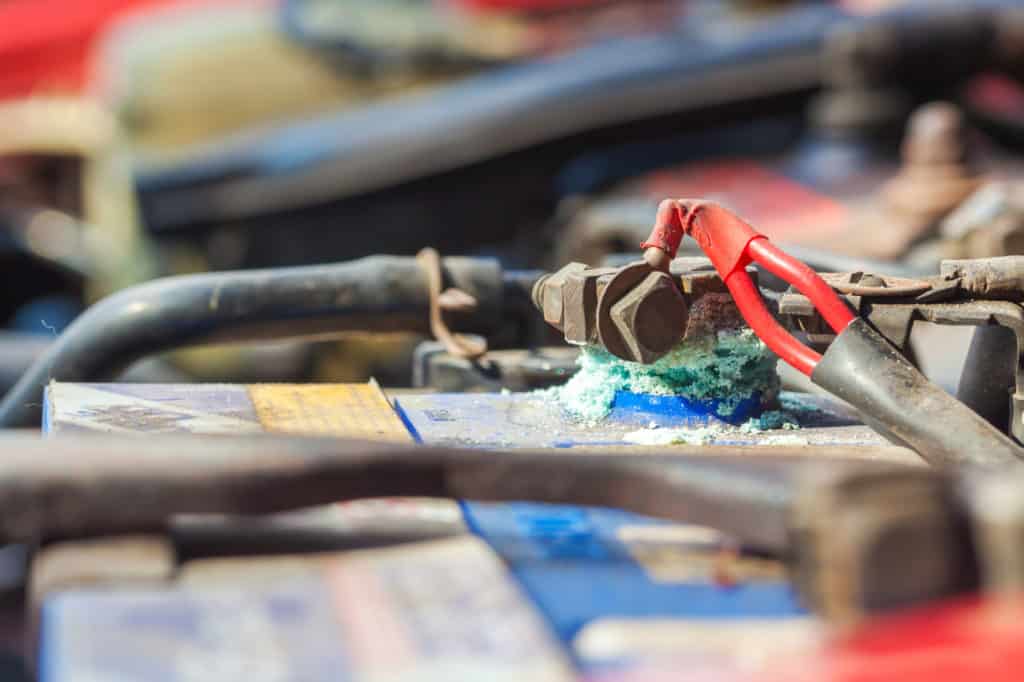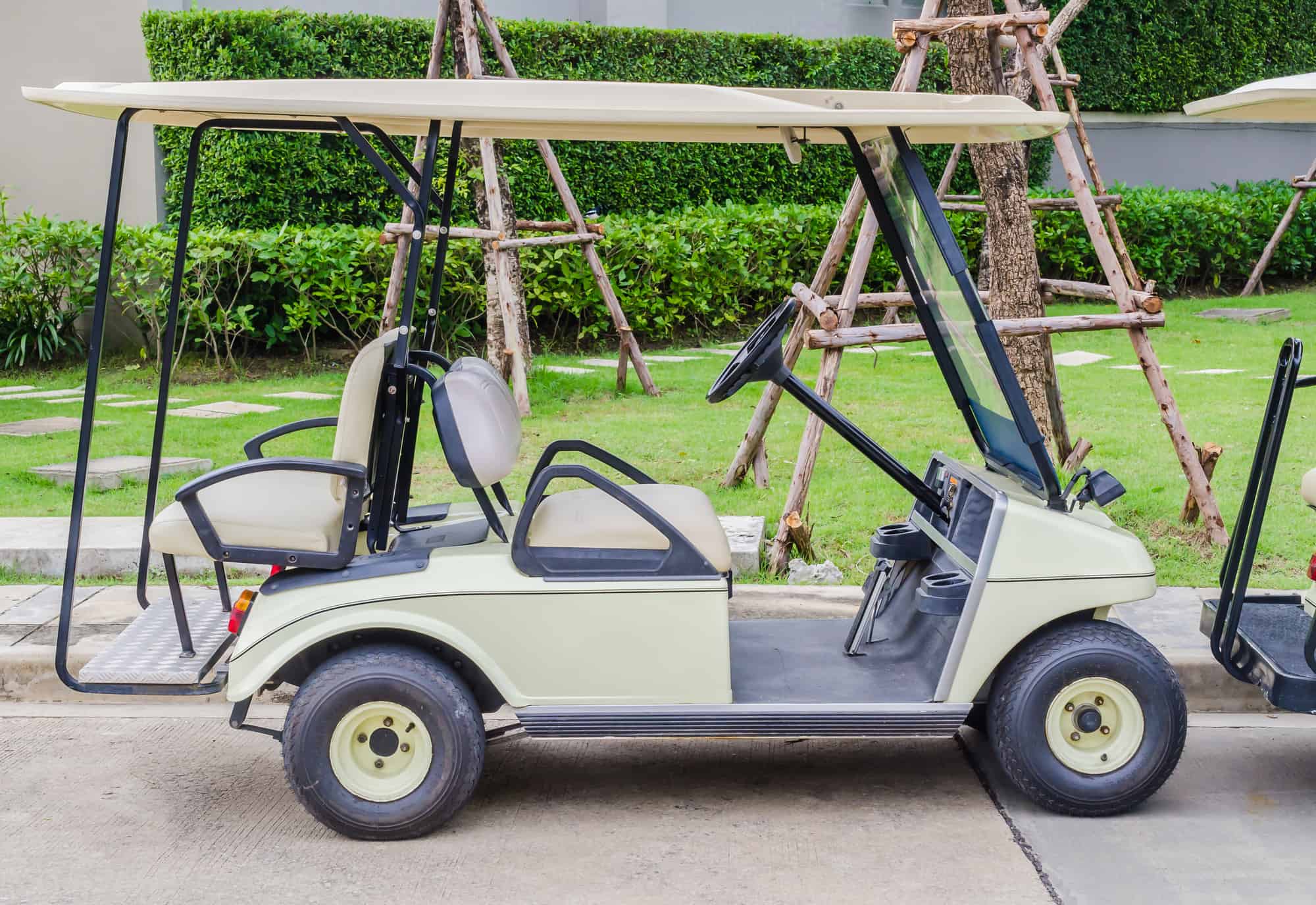
Charging a golf cart’s battery is essential from time to time because it ensures that your cart runs smoothly and efficiently.
However, there are times when you may experience an adverse reaction from your battery as it charges, such as boiling.
This situation is one that may be indicative of multiple types of concerns and is something that you need to address as soon as possible to avoid confusion.
Therefore, it is essential for you to examine the different reasons why your batteries may be boiling and whether the amount of boiling is healthy.
A good way to gauge this is if your battery boils over and spills – this amount is not a healthy look for your battery.
Should Golf Cart Batteries Boil When Charging?
It is true that your golf cart battery is experiencing a large amount of electrical current while it charges and that this does put a strain on its battery acid and the water inside of its cells.
However, the charge should never be enough to cause your batteries to boil over or spill.
This problem is one that only occurs if there are other issues affecting your golf cart or the battery itself.
That said, it is true that some boiling may be noticed while your flooded lead-acid battery is charging.
There are very limited circumstances when this type of boiling occurs and it should not be very overpowering.
Typically, you’re going to notice some light boiling that may occur at the end of the charge and this should trigger a little venting of hydrogen gas that keeps your acid healthy.
Most cart owners are unlikely to notice this type of boiling because it occurs within the battery itself and usually doesn’t cause any boiling over.
However, there is a chance that more severe boiling may occur at some point with your battery – this situation can be frustrating and even damaging because the acid and the water will flow out of your cells and onto the charger and where the charger sits.
As a result, you need to understand what situations may cause your battery to start to boil over.
These issues are usually related to problems concerning the charger and the acid within the battery.
However, there are other problems that may develop if you aren’t careful, and these concerns can be troubling if you don’t manage them as soon as possible and keep your battery in great operating order.
Too Much Water and Acid in the Battery
The most common issue that typically affects batteries is overfilling them with water.
Most golf cart batteries have a container that holds both acid and water.
The water helps to distribute the electrical charge evenly and keeps the acid cool.
However, some people make the mistake of adding too much water or acid to the battery, though this issue is usually more common with water than acid.
For example, some people may put too much water into their battery when it comes time to fill it up.
This issue typically occurs if they don’t pay attention to the fill line but just pour water into the container until it is filled up.
This mistake is a problematic one and is something that can be easily avoided by pouring only as much water into your battery’s tank as is needed to hit that fill level.
And make sure that you ONLY use DISTILLED water when you fill up your tank.
NEVER, we repeat NEVER use tap water or any other type.
Distilled water removes metal shavings and other minerals that may exist within the water and cause your battery damage or make it boil.
If you ever add tap water to your battery, you need to talk to an expert to get it removed before charging your battery up.
Too Long of a Charge
When you put your battery on a charger, you typically have to run it for just a specific period to get it back to full operative power.
Most chargers will automatically turn off when you reach this point but may still suffer from issues if you leave the battery on the charger too long.
This often occurs if you don’t use a trickle charger and end up getting busy as your battery gets overcharged instead.
For example, the alternator in the charger may be running too powerfully and causing the battery to charge up too much.
This issue requires you to purchase a new charger designed for your battery.
You may also cause this issue if you keep the battery on the charger for too long and it doesn’t have an automatic switch.
Typically, this boiling problem occurs if you get over 14.5 volts during the charge.
Please note that you should only use a charger that is designed specifically for your battery and not another type.
Some people may make the mistake of putting a battery on the wrong charger and cause it to get too much electricity charge.
Remember – your battery is designed to hold a specific charge and adding too much power with the wrong charger is going to cause some issues with its operation.
Problems With the Charger
Though a good battery charger should never cause a battery to overflow and boil if it is operating properly, small issues may cause it to send too much power to your battery.
For example, you may end up with a battery charger that has a broken regulator that sends too much power.
Or the charger may have coils that are overcharged and sending too much power to your battery.
When this happens, your battery will boil over and trigger damage to your battery and other parts of your charger.
The frustrating thing about this situation is that charger issues can seemingly appear out of nowhere and cause damage to your battery and charger that may be hard to fix.
Try to find a charger that has a regulated flow, one that you can change to meet the needs of your battery.
And always remove the battery as soon as possible from any charger – leaving it on may damage the charger.
And please never try to grab a battery when it is boiling over!
The battery will burn your hand and cause damage that can be quite painful. Instead, unplug the charger and let the battery stop boiling.
This wait is frustrating because your battery is going to get damaged as you wait.
But there isn’t much you can do here – you may need to get a new battery and charger, so be prepared to spend a little money if your battery ever boils over at any point in this situation.



Leave a Reply